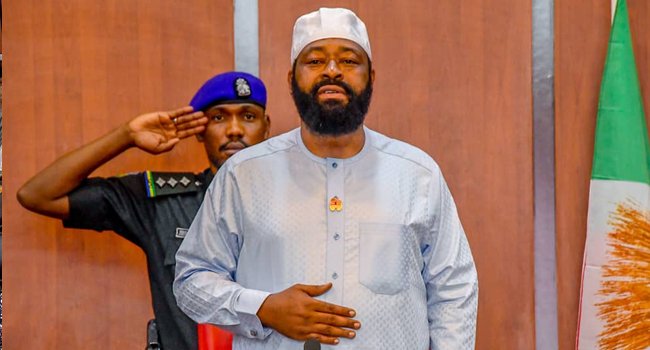GOVERNOR Umar Mohammed Bago of Niger State has stirred nationwide debate after reaffirming that all religious preachers must submit their sermons for government approval before addressing congregations, in what his administration says is a bid to curb hate speech, extremism, and security threats.
Speaking on TVC’s Politics on Sunday monitored by News Point Nigeria, the governor dismissed claims that the new regulation amounts to a blanket ban on evangelism or da’awah (Islamic propagation), insisting it is a proactive step to ensure peace and prevent incitement.
“I didn’t ban evangelism,” Bago said. “For everyone going to sermon on Friday, he should bring his scriptures for review, and it’s normal. Even in Saudi Arabia, this is done.
We cannot say because you have been given the opportunity to be a cleric, you will go out and preach the gospel that is anti-people, anti-government, and think it’s normal.”
The governor said his administration was working closely with security agencies, including the DSS, Police, NSCDC, and the military, to monitor and address potentially inflammatory sermons that could undermine peace.
The controversy began when the Director General of the Niger State Religious Affairs Department, Umar Farooq, announced that preachers had been given two months to obtain preaching licences or risk sanctions.
“All they need to do is visit our office, fill a form, and face a screening panel before they can start preaching,” Farooq explained. “Any preacher who wants to preach must secure a licence between now and the next two months.”
The announcement sparked mixed reactions from religious leaders and civil society groups, many of whom fear the policy could be abused to suppress dissent.
The Chief Imam of the Federal University of Technology, Minna, Sheikh Bashir Yankuzo, offered a nuanced view, acknowledging that while government intervention is acceptable to curb hate speech, it must not infringe on genuine religious duty.
“Preaching is a command from God, and the government is not paying anyone for doing the job,” Yankuzo said.
“But if there are people causing security threats or using abusive words, then government can have control over that to maintain peace.”
The Christian Association of Nigeria (CAN) in Niger State, through its Secretary Raphael Opawoye, said the body was not officially informed of the policy.
“The Christian Association of Nigeria is not aware of the ban. We shall come up with a statement when we are officially informed,” Opawoye stated.
However, Islamic scholar Uthman Siraja condemned the move outright, calling it a violation of fundamental rights: “The ban on preaching is an infringement of freedom of worship and religion.
“The best thing for government is to invite and penalise any preacher who incites the public in the course of preaching, rather than blanket screening.”
Governor Bago defended the policy as a preventive security measure, especially given the state’s history of banditry, sectarian clashes, and extremist indoctrination. He likened the vetting process to similar regulations in countries like Saudi Arabia, arguing that it was not intended to gag religious expression but to protect citizens.
As the deadline for compliance approaches, all eyes are on Niger State to see whether the policy will promote peace or escalate tensions between the state and its religious communities.







